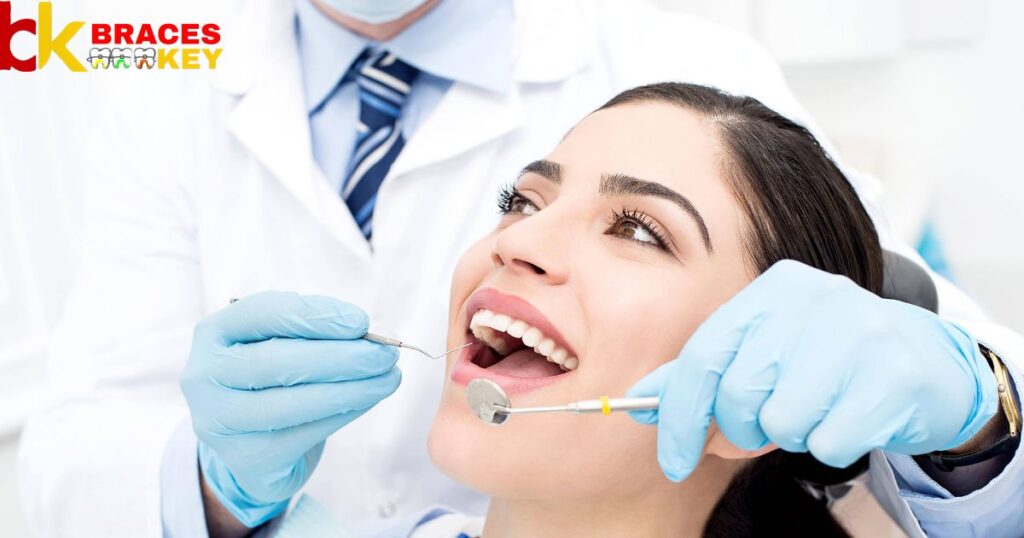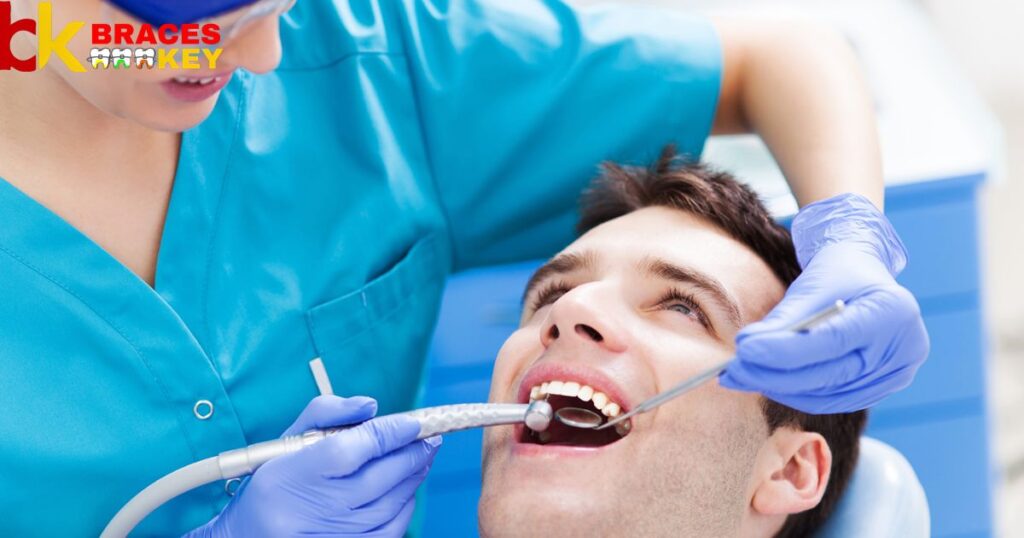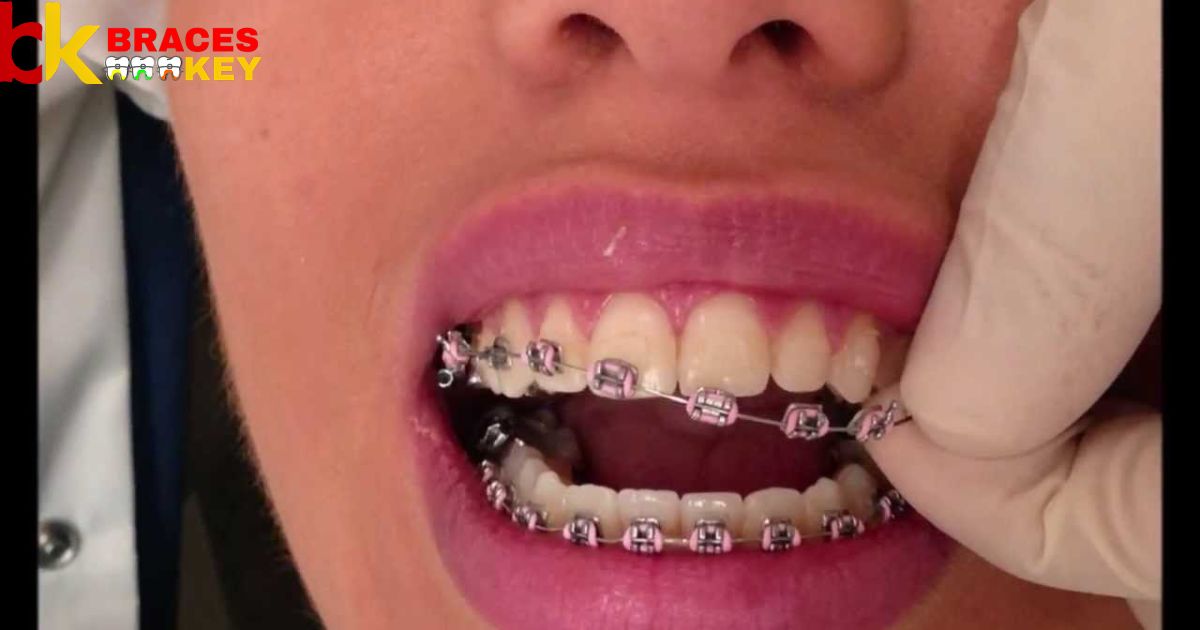Wisdom teeth removal involves the extraction of the third molars located at the back of the mouth. It’s a common dental procedure to prevent potential issues like overcrowding, impaction, or infections. Braces, on the other hand, are orthodontic devices used to align and straighten teeth.
Wondering about the ideal time to get braces after wisdom teeth removal? This question arises frequently among individuals seeking orthodontic treatment after undergoing wisdom teeth extraction. The interaction between these dental procedures is pivotal for a successful outcome. Understanding the timeline for getting braces post-wisdom teeth removal is essential for a comprehensive dental plan.
After wisdom teeth removal or after cavity filling, the period before getting braces can vary. It’s advisable to wait for the initial healing, which might take a few weeks. Dentists or orthodontists often recommend waiting for the mouth to recover fully before commencing orthodontic treatment.
How Long After Wisdom Teeth Removal Can I Get Braces?
The decision regarding the timeline for getting braces after wisdom teeth removal involves several key considerations. The timing is not standardized and varies from person to person based on the individual’s healing process, the extent of the wisdom teeth extraction, and professional recommendations.
Timing and Considerations
Determining the ideal timing for initiating orthodontic treatment post-wisdom teeth extraction is a crucial step. Factors such as the complexity of the extraction, the number of teeth removed, and the individual’s healing capacity influence the waiting period. Generally, dentists advise waiting until the initial healing phase is completed before considering braces.
Consulting with Dental Professionals
A significant aspect of this process is seeking guidance from dental professionals. Dentists and orthodontists play a pivotal role in evaluating when it’s suitable to start orthodontic treatment after wisdom teeth removal. They consider various factors, such as the patient’s overall oral health, the progress of the healing process, and the readiness of the mouth for braces.
Ensuring Complete Healing
Allowing the mouth to heal fully after wisdom teeth removal is critical before introducing braces. Complete healing reduces the risk of complications during orthodontic treatment. It provides a stable foundation for the successful application and adjustment of braces. Patience during this healing period is essential for a smoother orthodontic journey.
Can Braces Straighten Wisdom Teeth?

While braces are primarily designed to align and straighten the visible teeth, their impact on the alignment of wisdom teeth might vary. Wisdom teeth, being the final set of molars at the back of the mouth, might not be substantially affected by traditional orthodontic treatment.
Understanding Orthodontic Treatment
Braces work on the alignment of visible teeth by applying gentle pressure to move them into the desired position over time. However, their influence on the alignment of wisdom teeth might be limited due to their location and the stage of their development.
Impact on Wisdom Teeth Alignment
The effect of braces on wisdom teeth alignment is often minimal, especially if the wisdom teeth are impacted or partially erupted. The pressure exerted by braces might not significantly alter the position or eruption pattern of these molars due to their location at the back of the mouth.
Potential Outcomes
In some cases, braces might exert slight pressure on adjacent teeth, indirectly affecting the space available for wisdom teeth. The potential outcomes of using orthodontic treatment to manage wisdom teeth alignment issues should be discussed with dental professionals to set realistic expectations.
What if I Have Braces and My Wisdom Teeth are Coming In?
The emergence of wisdom teeth while undergoing orthodontic treatment requires careful consideration to prevent potential complications or disruptions to the ongoing treatment plan.
Monitoring Wisdom Teeth Development
The simultaneous eruption of wisdom teeth during ongoing orthodontic treatment requires vigilant monitoring. This involves regular dental check-ups to assess the impact of wisdom teeth on the existing braces and the overall progress of orthodontic treatment.
Orthodontic Adjustments
Should the emerging wisdom teeth start interfering with the existing orthodontic treatment, adjustments to the braces or the treatment plan might be necessary. These adjustments aim to accommodate the new teeth while maintaining the progress of the ongoing orthodontic treatment.
Collaborative Dental Care

Collaboration between orthodontists, oral surgeons, and general dentists is crucial in managing the coexistence of orthodontic treatment and wisdom teeth eruption. This collaborative effort ensures a cohesive approach to address any challenges and make necessary adjustments to the treatment plan.
The Relationship Between Wisdom Teeth and Orthodontic Treatment
Understanding the interconnectedness between wisdom teeth issues and orthodontic treatment is essential for comprehensive dental care.
Orthodontic Solutions for Wisdom Teeth Issues
Orthodontic strategies can address problems arising from wisdom teeth, such as overcrowding or misalignment. These solutions involve a combination of orthodontic treatment and potential extractions or surgical interventions, depending on the individual’s case.
Timing for Optimal Results
Coordinating the management of wisdom teeth with orthodontic treatment is crucial for achieving the best results. Proper timing ensures that orthodontic treatment is carried out in a conducive environment, minimizing the risk of potential complications.
Comprehensive Dental Planning
Taking a holistic approach to oral health involves considering both orthodontic treatment and potential wisdom teeth issues in a comprehensive dental plan. This approach ensures long-term oral health and prevents future dental complications.
Still Have Questions About Wisdom Teeth and Braces?
For individuals seeking further guidance or clarification on the relationship between wisdom teeth and orthodontic treatment, continued assistance is available.
Seeking Further Guidance
Continued consultation with dental professionals is encouraged for those with ongoing questions or uncertainties. Seeking a second opinion can provide additional insights and clarification.
Addressing Concerns
It’s essential to address any remaining concerns or queries regarding wisdom teeth and braces. Clearing doubts allows for informed decision-making about the appropriate dental care.
Tailored Dental Solutions

Recognizing the importance of personalized dental care, tailored solutions consider individual circumstances, concerns, and treatment plans for the best possible outcomes. Collaboration with dental professionals ensures that the treatment aligns with the patient’s specific needs and goals.
To enhance your understanding, here’s a sample table depicting a timeline for braces after wisdom teeth removal:
| Weeks Post Wisdom Teeth Removal | Feasibility of Starting Braces |
| 0-2 weeks | Healing, no braces recommended |
| 3-6 weeks | Evaluation for potential braces |
| 7+ weeks | Consideration for initiating braces |
This table provides a general timeline depicting when braces might be feasible after wisdom teeth removal. Actual recommendations may vary and should be discussed with a dental professional.
FAQs
Can I get braces immediately after wisdom teeth removal?
It’s advisable to wait for complete healing, typically a few weeks, before considering braces to reduce the risk of complications.
Will braces prevent wisdom teeth from coming in?
Braces don’t directly prevent wisdom teeth from erupting, but they can influence available space and alignment for incoming molars indirectly.
Should I remove my wisdom teeth before getting braces?
The decision to remove wisdom teeth before braces depends on individual dental needs. Consultation with a dentist or orthodontist helps determine the best course of action.
What if my wisdom teeth emerge during ongoing braces treatment?
Regular monitoring is essential. Adjustments may be necessary in the braces or treatment plan to accommodate the new teeth without disrupting progress.
Can I get braces if my wisdom teeth are impacted?
Orthodontic treatment is possible even with impacted wisdom teeth, but coordination between an orthodontist and an oral surgeon might be necessary for the best approach.
Conclusion
The relationship between wisdom teeth and braces is an intricate interplay that necessitates careful consideration and professional guidance. The timing of getting braces after wisdom teeth removal is a critical factor influencing the success of orthodontic treatment.
It’s imperative to understand that while braces primarily target the alignment of visible teeth, their impact on the positioning of wisdom teeth might be limited due to their location and developmental stage.
Continued collaboration between dental professionals and patients is crucial in navigating the complexities of managing both wisdom teeth and orthodontic treatment. Tailored dental solutions and comprehensive planning ensure the best possible outcomes for long-term oral health.








